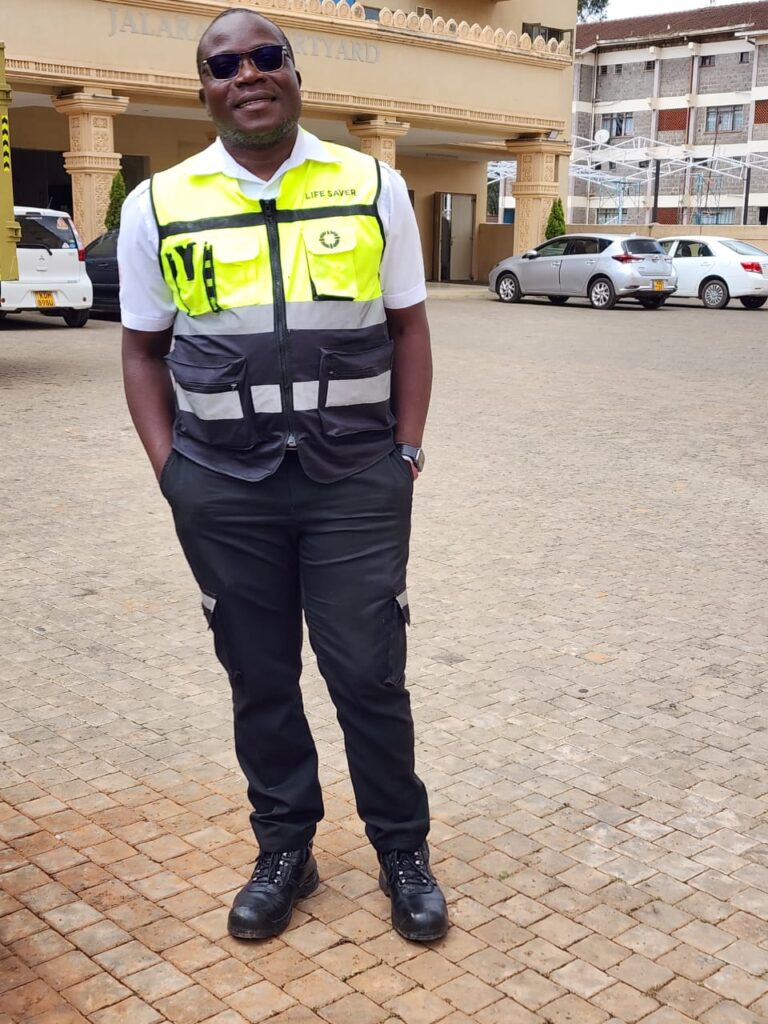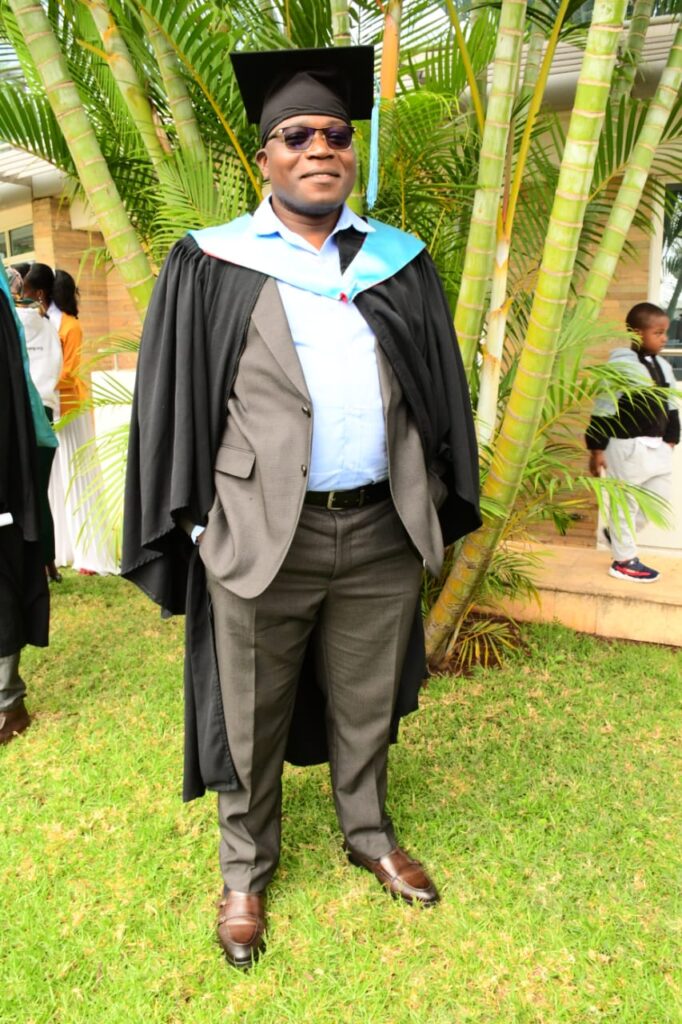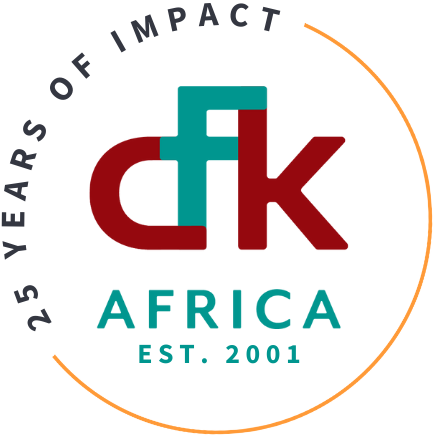Written by Nicholas Okumu, CFK Africa Lead Paramedic
Working in Kibera teaches you to think fast, stay calm, and lead with empathy. As an ambulance driver and paramedic, the narrow streets and limited resources can turn what first seems like a simple call into a test of endurance. My training in emergency response helps me balance precision with humanity, and to be, quite literally, the calm in chaos.
My journey in emergency medical services began in 2017, when I humbly served as an ambulance driver at Shalom Hospital. What started as a simple job soon turned into a deep calling. I had a burning desire to do more, to impact lives beyond the steering wheel. I was moved by the moments when we would stop the ambulance to resuscitate critically ill patients. Watching the medical team in action sparked something in me; I wanted to do more than just drive, and I knew I could.
That dream led me to the Kenya Red Cross Training Institute, where I pursued my Certificate in EMT (Emergency Medical Technician), became a Fire Marshal, and later advanced as an ACLS (Advanced Cardiovascular Life Support)/BLS (Basic Life Support) provider and instructor. It was never easy. There were long nights, doubts, and moments when giving up seemed easier, but passion and purpose kept me on track. I officially joined CFK Africa to serve my community as a first responder in November 2020, when the COVID-19 pandemic was still a major concern.

Saving lives is a calling for me. Every time I meet a patient I once helped in their moment of greatest need, it reminds me why I do what I do. That feeling, knowing that someone is alive today because I was there, drives me every single day.

I am always learning and growing professionally. I recently completed my diploma in Paramedicine. I also serve as Chairperson of the Kenya Red Cross Training Institute Alumni Association, an organization I helped establish. This role allows me to give back by advocating for better training, improved welfare, and higher standards in pre-hospital care across Kenya.
I work closely with first responders to raise awareness of the challenges they face, ranging from resource gaps to policy issues, and work to ensure their voices are heard at national and institutional levels. It is a role that keeps me grounded in both leadership and service.
Today, I serve as the Lead Paramedic at CFK Africa, where no two days are ever the same. Some days, I lead emergency drills or train community health promoters in basic life support. Other days, I am responding to real emergencies in the heart of Kibera. Every call is a test of skill, speed, and compassion, and each one reminds me why I chose this path: to make every intervention count and to save lives in my community.
Wearing hats as both a paramedic and alumni leader allows me to bridge training and real-world practice. Through community workshops, partnerships, and advocacy, I strive to build a stronger emergency response network that serves both professionals in the field and the people who depend on them.
Every siren, every call, every person we reach at CFK Africa is a reminder of what it takes to provide emergency care in Kibera. First and foremost, it requires trust, dignity, and human connection. With CFK Africa as my home and the alumni network as my extended family, I am inspired to create a future where every Kenyan, no matter where they live, can receive timely, compassionate emergency care.
Make a tax-deductible donation to CFK Africa to support critical healthcare services in Kibera.
